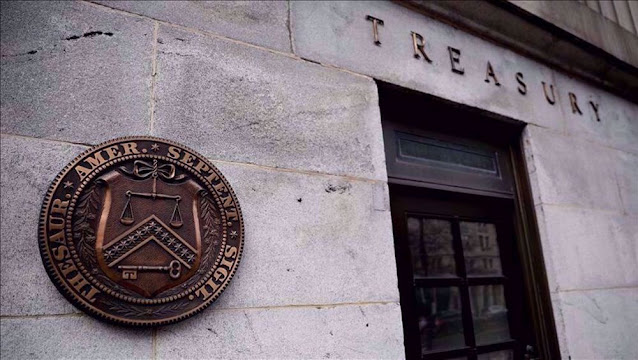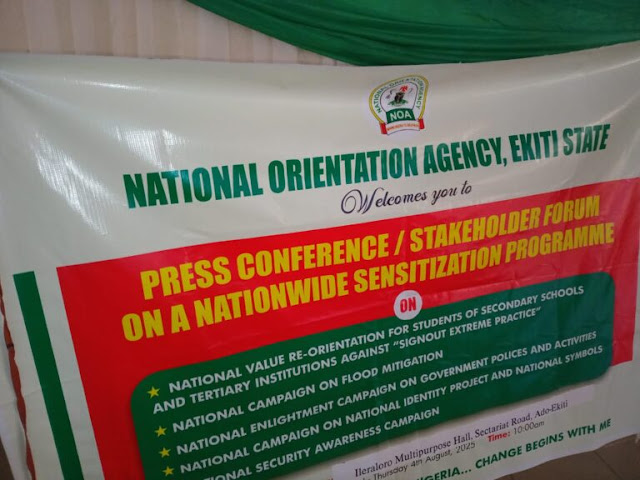Washington, D.C. – On September 5, 2025, the United States announced sanctions against three Palestinian human rights organizations that had requested the International Criminal Court (ICC) to investigate Israel for alleged war crimes and genocide in the Gaza Strip. The decision, which has sparked widespread condemnation from human rights advocates and international organizations, underscores the deepening geopolitical tensions surrounding the Israeli-Palestinian conflict. The sanctions target groups accused by the U.S. of undermining Israel’s security, raising critical questions about the role of international law, the limits of sovereignty, and the global struggle for accountability in one of the world’s most protracted conflicts.
The US Treasury Department is pictured in Washington, DC, US. (File photo by Reuters)
This move comes amid escalating violence in Gaza, where Israeli military operations have resulted in significant civilian casualties and widespread destruction. The U.S. sanctions, which include asset freezes and travel bans, are seen by critics as an attempt to shield Israel from scrutiny while stifling Palestinian advocacy. The decision has reignited debates about the politicization of human rights, the influence of powerful nations on international justice, and the broader implications for global governance. This article explores the context, motivations, and consequences of the U.S. sanctions, situating them within the complex dynamics of the Israeli-Palestinian conflict and the evolving landscape of international relations.
Historical Context: The Israeli-Palestinian Conflict
The Israeli-Palestinian conflict, now in its eighth decade, is one of the most enduring and polarizing conflicts in modern history. Rooted in competing national aspirations, territorial disputes, and historical grievances, the conflict has its origins in the late 19th and early 20th centuries, when Zionist movements sought to establish a Jewish homeland in historic Palestine, then under Ottoman and later British control. The 1948 establishment of the State of Israel, following the UN Partition Plan of 1947, marked a turning point, leading to the displacement of hundreds of thousands of Palestinians in what is known as the Nakba, or “catastrophe,” in Palestinian narratives.
Since then, the conflict has been shaped by wars, uprisings (Intifadas), peace negotiations, and ongoing occupation. The Gaza Strip, a 365-square-kilometer coastal enclave home to over 2 million Palestinians, has been a focal point of tensions since Israel’s withdrawal of settlers in 2005 and the subsequent rise of Hamas, a Palestinian militant group, to power in 2007. Israel’s blockade of Gaza, imposed in response to Hamas’s control and rocket attacks, has restricted the movement of goods and people, leading to severe humanitarian challenges, including poverty, unemployment, and limited access to healthcare and education.
The current escalation, which began in October 2023, has been particularly devastating. According to reports from Press TV and other sources, the conflict has claimed over 63,630 Palestinian lives and injured more than 160,900 others as of September 2025. The Israeli military’s operations, which include airstrikes, ground incursions, and the targeting of infrastructure, have been justified by Israel as necessary to neutralize Hamas, which it designates as a terrorist organization. However, the scale of civilian casualties, including the deaths of children, women, and aid workers, has fueled accusations of war crimes and genocide. Human rights organizations, including Human Rights Watch, have warned that actions such as the deliberate obstruction of humanitarian aid constitute violations of international humanitarian law.
The International Criminal Court has emerged as a key player in addressing these allegations. In November 2024, the ICC issued arrest warrants for Israeli Prime Minister Benjamin Netanyahu and former Defense Minister Yoav Gallant, citing war crimes and crimes against humanity in Gaza. This decision, which followed years of investigations into alleged violations by both Israeli and Palestinian actors, has intensified international scrutiny of the conflict and highlighted the challenges of enforcing accountability in a politically charged environment.
The U.S. Sanctions: Details and Rationale
The U.S. sanctions target three Palestinian human rights organizations, though specific names were not disclosed in the original Press TV report. These groups are accused by the U.S. of promoting narratives that undermine Israel’s security and sovereignty by seeking ICC investigations into alleged war crimes. The sanctions, announced by the U.S. Department of State, include measures such as asset freezes, travel bans, and restrictions on financial transactions, effectively limiting the organizations’ ability to operate internationally.
The U.S. government has defended the sanctions as a necessary response to what it describes as “anti-Israel propaganda” and efforts to delegitimize the Jewish state. In a statement, a State Department spokesperson argued that the targeted organizations were engaged in activities that “threaten regional stability” by pursuing legal actions that could destabilize U.S.-Israel relations. The spokesperson emphasized the U.S.’s commitment to Israel’s right to self-defense, particularly in light of Hamas’s attacks and the ongoing security threats posed by militant groups in Gaza.
This is not the first time the U.S. has sanctioned entities associated with the ICC or Palestinian advocacy. In August 2025, the U.S. imposed sanctions on four ICC judges involved in issuing arrest warrants against Israeli officials, prompting a sharp rebuke from the ICC, which described the measures as “an affront to millions of innocent victims.” The sanctions against Palestinian organizations reflect a broader U.S. policy of protecting Israel from international legal scrutiny, a stance that has drawn criticism for undermining the principles of impartial justice.
The Role of the ICC and International Law
The International Criminal Court, established in 2002 under the Rome Statute, is tasked with prosecuting individuals for genocide, war crimes, crimes against humanity, and the crime of aggression. The ICC operates independently of the United Nations and relies on the cooperation of its 125 member states to enforce its rulings. Palestine, recognized as a non-member observer state by the UN in 2012, acceded to the Rome Statute in 2015, granting the ICC jurisdiction over crimes committed in its territory, including Gaza and the West Bank.
The ICC’s investigations into the Israeli-Palestinian conflict have focused on alleged violations by both sides, including Israeli military actions and Palestinian militant attacks. The court’s decision to issue arrest warrants for Israeli leaders marked a significant escalation, as it was the first time sitting officials of a close U.S. ally faced such charges. The U.S., which is not a member of the ICC and has historically opposed its jurisdiction over American and allied personnel, has responded with increasing hostility to the court’s actions.
The sanctions against Palestinian organizations are seen by critics as an attempt to intimidate those seeking accountability through the ICC. Human rights advocates argue that the U.S. is undermining the court’s independence and sending a message that legal challenges to powerful nations or their allies will not be tolerated. The ICC itself has vowed to continue its work “undeterred,” emphasizing its commitment to victims of atrocities and its mandate under international law.
Geopolitical Implications
The U.S. sanctions must be understood within the broader geopolitical context of the Israeli-Palestinian conflict and U.S. foreign policy. The United States has long been Israel’s closest ally, providing billions of dollars in military and economic aid annually. This relationship is rooted in shared strategic interests, including countering regional threats from Iran and its proxies, as well as domestic political dynamics in the U.S., where support for Israel enjoys bipartisan backing.
However, the U.S.’s unwavering support for Israel has come under increasing scrutiny, particularly from progressive lawmakers and activists who argue that it enables violations of Palestinian rights. Posts on X reflect this growing sentiment, with users like @CraigMokhiber asserting that “every state has an affirmative obligation to intervene” in response to alleged genocide in Palestine. Similarly, Human Rights Watch has warned that U.S. military personnel could face legal liability for assisting Israeli forces in committing war crimes, highlighting the risks of complicity in international law violations.
The sanctions also reflect tensions between the U.S. and the international community. While some European nations, such as Belgium, have taken steps to recognize Palestinian statehood and impose sanctions on Israel, the U.S. has maintained a more cautious stance, balancing support for Israel with calls for humanitarian aid and a ceasefire. The sanctions against Palestinian organizations risk further isolating the U.S. diplomatically, particularly among Global South nations that have expressed solidarity with Palestine.
The Humanitarian Crisis in Gaza
The Gaza Strip is at the heart of the controversy surrounding the U.S. sanctions. The ongoing conflict has created a humanitarian catastrophe, with widespread destruction of infrastructure, mass displacement, and severe shortages of food, water, and medical supplies. According to Press TV, the death toll from what it describes as the “US-Israeli genocide” since October 2023 has surpassed 63,630, with over 160,900 injuries. Reports have documented specific incidents, such as Israeli airstrikes targeting residential buildings and aid distribution centers, which have resulted in significant civilian casualties.
The blockade of Gaza, imposed by Israel and supported by Egypt, has exacerbated the crisis by restricting the flow of humanitarian aid. A UN rapporteur has described starvation in Gaza as a “direct result of Israeli aid obstruction,” accusing Israel of using hunger as a weapon of war. The Gaza Health Ministry has reported cases of malnutrition-related deaths, particularly among children, and the emergence of diseases like Guillain-Barré syndrome due to poor living conditions.
These conditions have fueled accusations of genocide, a charge that carries significant legal and moral weight. The term “genocide” is highly contentious, as it requires evidence of intent to destroy a group, in whole or in part. While human rights organizations and some governments have endorsed this framing, Israel and its allies, including the U.S., reject it, arguing that the military’s actions are aimed at Hamas, not the Palestinian population as a whole. The debate over terminology underscores the challenges of addressing the conflict in a polarized global environment.
Reactions to the Sanctions
The U.S. sanctions have elicited a range of reactions from stakeholders across the spectrum. Palestinian organizations and their supporters have condemned the measures as an attack on free speech and the right to seek justice. The targeted groups, which have not been publicly named, are believed to include prominent human rights organizations with a history of documenting alleged Israeli violations. These organizations have called for international solidarity, urging other nations to reject the U.S.’s actions and support the ICC’s investigations.
The ICC itself has responded sharply, reiterating its commitment to pursuing justice despite external pressures. In a statement, the court described the sanctions as “a flagrant attack against the independence of an impartial judicial institution.” The ICC’s stance reflects its broader struggle to assert its authority in the face of opposition from powerful nations like the U.S., which has a history of challenging the court’s jurisdiction, particularly in cases involving American or allied personnel.
In the U.S., the sanctions have deepened divisions over foreign policy. Progressive lawmakers and activists have criticized the Biden administration for prioritizing its alliance with Israel over human rights concerns. Posts on X, such as those from @LailaAlarian, highlight allegations of U.S. complicity in Israeli actions, including reports of U.S. contractors shooting at Palestinians seeking aid. These claims, while unverified, have amplified calls for accountability and a reevaluation of U.S. support for Israel.
Pro-Israel groups, such as the American Israel Public Affairs Committee (AIPAC), have welcomed the sanctions, arguing that they protect Israel from unfair targeting by the ICC and Palestinian organizations. AIPAC and similar groups have long lobbied for policies that shield Israel from international criticism, framing such efforts as essential to ensuring Israel’s security in a hostile region.
Internationally, the sanctions have drawn criticism from human rights organizations and some governments. Amnesty International described the measures as “a dangerous precedent” that undermines the global human rights framework. The European Union, while divided on the Israeli-Palestinian issue, issued a statement calling for respect for the ICC’s independence and urging all parties to prioritize dialogue and humanitarian aid.
The Role of Media and Narratives
Media coverage of the sanctions and the broader Gaza conflict plays a critical role in shaping public opinion. Press TV, the source of the original article, is an Iranian news network affiliated with the Islamic Republic of Iran Broadcasting. Its reporting consistently frames Israel’s actions as genocidal and highlights U.S. complicity, reflecting Iran’s geopolitical stance as a vocal critic of Israel and the U.S. While Press TV’s coverage provides valuable insights into the Palestinian perspective, its state-backed nature raises questions about bias, as it often aligns with Iran’s broader agenda in the Middle East.
Western media outlets, by contrast, tend to present a more balanced or pro-Israel perspective, emphasizing Israel’s security concerns and Hamas’s role in the conflict. This divergence in narratives underscores the challenge of establishing a shared understanding of the conflict, as different outlets prioritize different aspects of the story. The sanctions against Palestinian organizations are likely to be framed differently across these media landscapes, with implications for public perception and policy debates.
Economic and Political Impacts
The sanctions could have significant economic and political consequences for the targeted organizations and the broader Palestinian advocacy movement. By freezing assets and imposing travel bans, the U.S. is effectively limiting these groups’ ability to operate, fundraise, and engage with international partners. This could weaken their capacity to document alleged violations and pursue legal action, potentially silencing critical voices in the human rights community.
Politically, the sanctions reinforce the U.S.’s alignment with Israel, signaling to other nations that it will take robust measures to protect its ally. However, this stance risks alienating allies in the Global South and progressive constituencies within the U.S., who view the sanctions as an overreach. The decision could also strain U.S. relations with the ICC and its member states, many of which support the court’s investigations into the Israeli-Palestinian conflict.
For Palestine, the sanctions represent a setback in the struggle for international recognition and accountability. Palestinian organizations have long relied on global solidarity to amplify their cause, and the U.S.’s actions could discourage other groups from engaging with the ICC or advocating for Palestinian rights. However, the sanctions may also galvanize support for Palestine, as seen in the growing momentum of the Boycott, Divestment, and Sanctions (BDS) movement and resolutions like the one passed by Scotland’s Parliament to boycott Israel.
The Broader Struggle for Justice
The U.S. sanctions highlight the broader struggle for justice in the Israeli-Palestinian conflict. The pursuit of accountability through institutions like the ICC is fraught with challenges, as powerful nations wield significant influence over international processes. The U.S.’s actions reflect a broader pattern of protecting allies from legal scrutiny, a practice that has also been evident in its opposition to ICC investigations into American personnel in Afghanistan.
For Palestinians, the sanctions underscore the asymmetry of power in the conflict. While Israel enjoys strong support from the U.S. and other Western nations, Palestinians rely on grassroots movements, human rights organizations, and international institutions to advocate for their rights. The targeting of these organizations by the U.S. raises questions about the viability of legal and nonviolent strategies in the face of political and economic pressures.
The sanctions also highlight the limitations of international law in addressing complex conflicts. While the ICC represents a mechanism for accountability, its effectiveness depends on the cooperation of states and the political will to enforce its rulings. The U.S.’s opposition to the ICC’s actions in the Israeli-Palestinian conflict illustrates the challenges of achieving justice when geopolitical interests are at stake.
Looking Ahead: Challenges and Opportunities
The U.S. sanctions against Palestinian organizations are likely to have far-reaching implications for the Israeli-Palestinian conflict and the global human rights landscape. In the short term, they may succeed in limiting the activities of the targeted groups, but they could also galvanize international support for Palestine and strengthen calls for accountability. The ICC’s commitment to continuing its work despite U.S. pressure suggests that the pursuit of justice will persist, albeit in a challenging environment.
For the U.S., the sanctions risk further isolating it from parts of the international community, particularly as global opinion shifts toward greater scrutiny of Israel’s actions. The Biden administration faces a delicate balancing act, seeking to maintain its alliance with Israel while addressing growing domestic and international pressure to address the humanitarian crisis in Gaza. A failure to navigate these tensions could weaken U.S. credibility on human rights issues and complicate its relationships with allies.
For Palestinians, the sanctions underscore the need for resilience and strategic adaptation. Grassroots movements, international advocacy, and engagement with sympathetic governments and organizations will be critical to sustaining momentum. The growing recognition of Palestinian statehood by countries like Belgium, Ireland, and Spain offers hope for increased diplomatic support, even as the U.S. and other powers resist such moves.
Ultimately, the path to resolving the Israeli-Palestinian conflict requires addressing the root causes, including the occupation, the blockade of Gaza, and the cycle of violence perpetuated by both sides. International actors, including the UN, the EU, and regional powers, have a role to play in facilitating dialogue, ensuring humanitarian aid, and promoting accountability. The U.S. sanctions, while a setback for Palestinian advocacy, highlight the urgency of these efforts and the need for a just and lasting solution.
Conclusion
The U.S. sanctions against Palestinian human rights organizations seeking an ICC probe into Israel’s actions in Gaza represent a significant escalation in the ongoing Israeli-Palestinian conflict. By targeting groups advocating for accountability, the U.S. is signaling its commitment to protecting Israel from international scrutiny, even at the cost of undermining the principles of impartial justice. The decision has sparked widespread condemnation, highlighting the deep divisions over how to address the humanitarian crisis in Gaza and the broader struggle for Palestinian rights.
As the conflict continues to exact a devastating toll, the sanctions underscore the challenges of pursuing justice in a polarized world. The ICC’s investigations, the growing global solidarity with Palestine, and the resilience of Palestinian organizations offer hope for accountability, but the path forward is fraught with obstacles. The U.S.’s actions, while rooted in geopolitical strategy, risk further alienating those who seek a balanced and equitable approach to the conflict.
The Gaza crisis demands urgent action, from humanitarian aid to diplomatic efforts to address the root causes of the conflict. The international community, including the U.S., must prioritize dialogue, accountability, and respect for international law to pave the way for a just and lasting peace. For now, the sanctions serve as a stark reminder of the complexities and stakes involved in one of the world’s most intractable conflicts, with profound implications for human rights, global governance, and the pursuit of justice.






